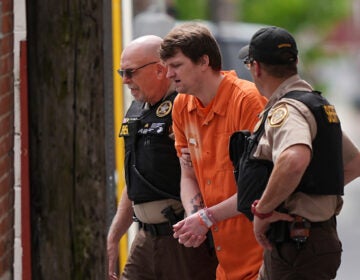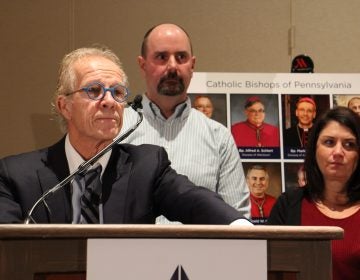AG Shapiro, Pa. lawmakers push for action on grand jury recommendations following clergy sex abuse report
The grand jury report named 301 predator priests, but noted it had information on more than 400, and more than 1,000 victims in the state.
Listen 1:35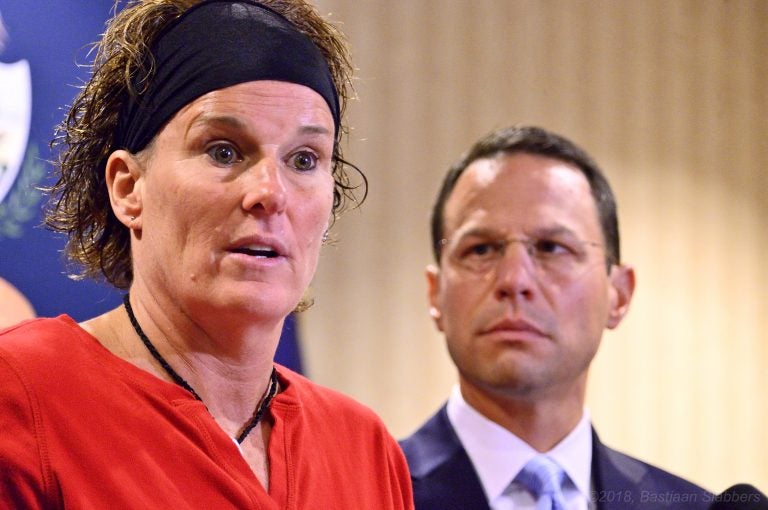
Mary McHale speaks at a press conference on recommendations by 40th Statewide Grand Jury, at the office of the Attorney General, in Norristown, PA, on Tuesday. (Bastiaan Slabbers for WHYY)
Pennsylvania Attorney General Josh Shapiro held a roundtable in Southeastern Pennsylvania Tuesday with state lawmakers, district attorneys and victims to urge state action on the recommendations laid out in last month’s grand jury report on clergy sex abuse.
Mary McHale, a nurse from Reading and survivor of abuse by a priest, supports the recommendation to up the the penalty for failing to report child abuse from a misdemeanor to a third-degree felony. Her job makes her a mandatory reporter.
“It’s long overdue and, to me, it’s a no brainer,” she said. “If the people vote for this bill, they stand with the victims. If they vote against it, they stand with the pedophiles and those people that injure or hurt children.”
McHale first told her story nearly 15 years ago when she found out she wasn’t her abuser’s only victim.
“I saw my abuser’s name in the local paper with the girl that went to my high school, and I wanted to come out and help her. I didn’t want her to be alone,” she said.
McHale says the grand jury process created a family among the survivors, but says she won’t feel at ease until the laws are changed.
“My abuser lives local to me. He’s no longer a priest, but he is locally out there,” she said. “I’ve become more public with my story and it scares me because I feel afraid, uneasy that he’s near my neighborhood and what he could do. He’s very arrogant and he has said arrogant things and those things play in my mind very often.”
State Rep. Todd Stephens, R-Montgomery, is sponsoring the bill that would strengthen the rules for failing to report child abuse. His bill would also compel mandatory reporters to alert authorities if an abuser is likely to be a repeat offender.
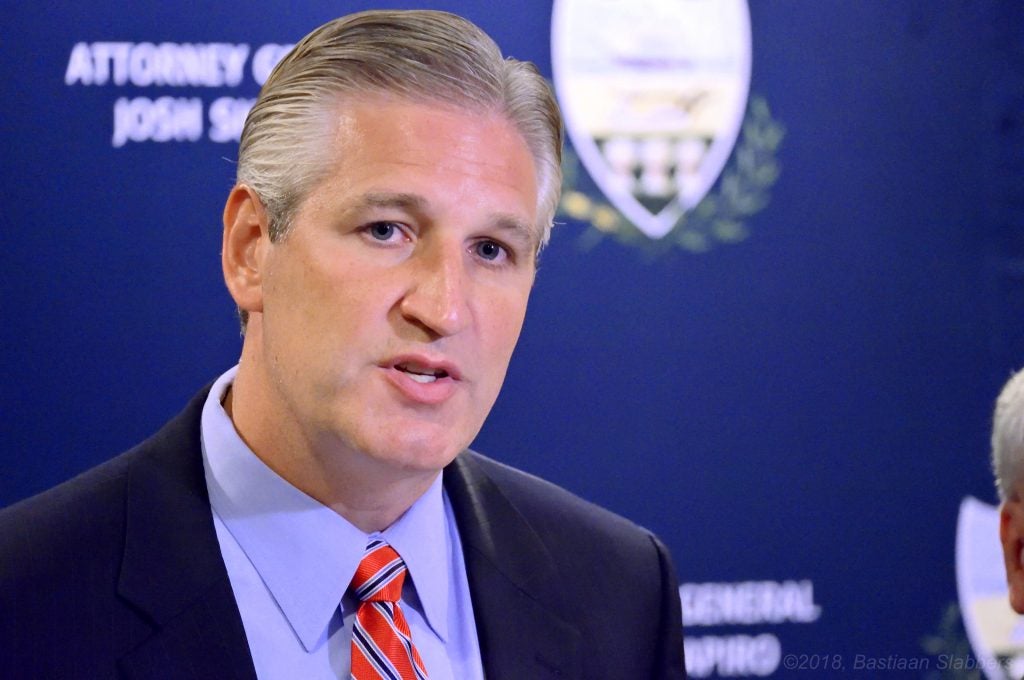
“Many of my colleagues who before were reticent to get on board, now they want to see these changes,” Stephens said. “They’ve heard very loudly and very clearly from the survivors and from those grand juries that these changes have to happen.”
The grand jury recommendations also include: eliminating the criminal statute of limitations; creating a two-year window for victims to file civil suits retroactively; and clarifying that civil confidentiality agreements cannot prevent communications with law enforcement.
‘Weak laws’
The grand jury report named 301 predator priests, but noted it had information on more than 400, and more than 1,000 victims in the state.
“We could only charge two of those 301 predator priests because of our weak laws here in the commonwealth,” said Shapiro. “Our laws do not go far enough here in Pennsylvania to protect victims of child sexual abuse and hold those accountable who cover it up.”
The attorney general says the office wasn’t able to address any of the institutional cover up.
“We ran each and every one of those Catholic church leaders who enabled the abuse, who covered the abuse up, through a statute of limitations test and we couldn’t charge any of them.”
Since the grand jury report was released five weeks ago, the A.G.’s office says more than 1,000 people have contacted the state clergy abuse hotline.
State lawmakers will reconvene Monday after their summer break.
State Sen. John Rafferty, R-Montgomery, vice chairman of the Senate Judiciary Committee, says he was appalled by the conduct of the Catholic Church.
He’s a practicing Catholic, and supports extending the statute of limitations for criminal and civil matters.
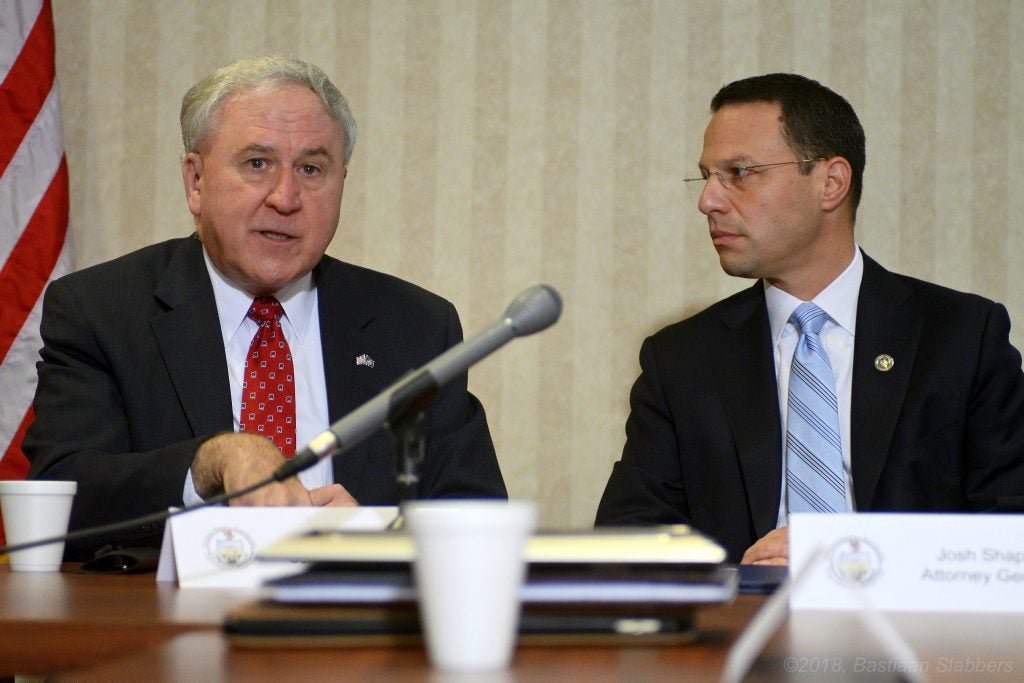
He disagrees with some his colleagues, who claim the remedies clause in the state constitution renders the idea of retroactive civil lawsuits unconstitutional.
“The remedies clause was never ever designed to protect anyone from child abuse, raping a child, sexually assaulting a child. Never ever ever. And for anyone to hide behind that, it’s a fallacy,” Rafferty said.
Oral arguments over the release of the full, un-redacted grand jury report are scheduled before the Pennsylvania Supreme Court next Wednesday at 9:30 a.m. in Philadelphia.
WHYY is your source for fact-based, in-depth journalism and information. As a nonprofit organization, we rely on financial support from readers like you. Please give today.



